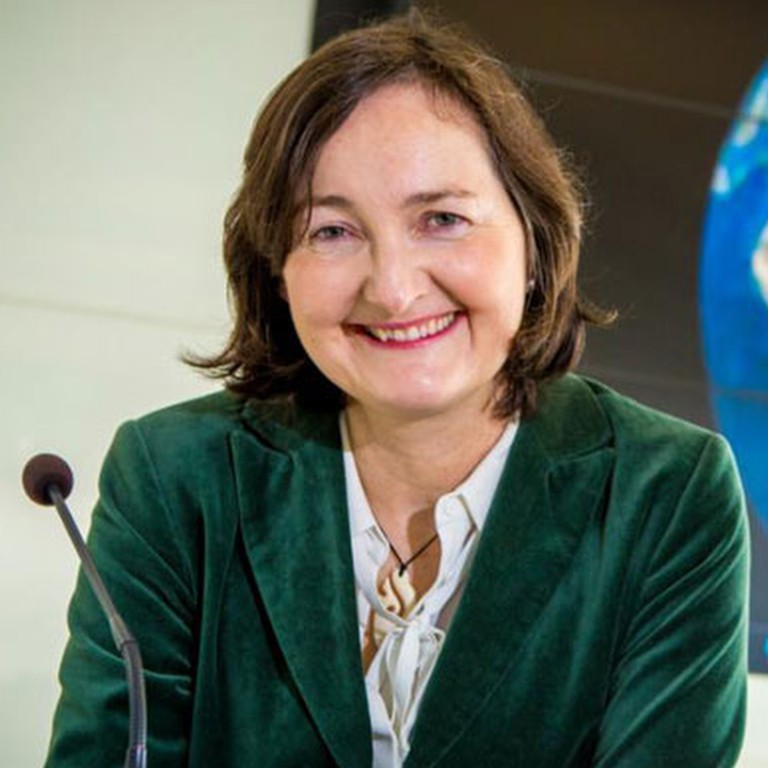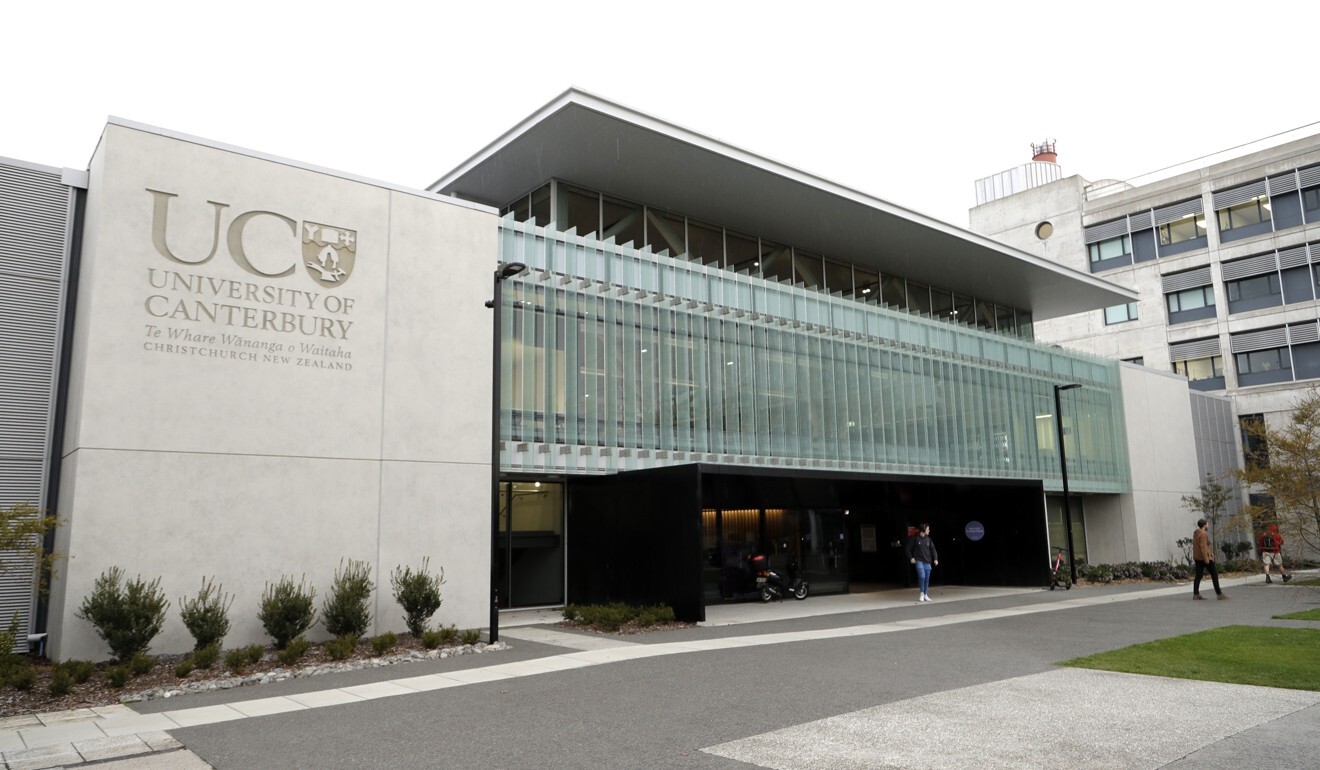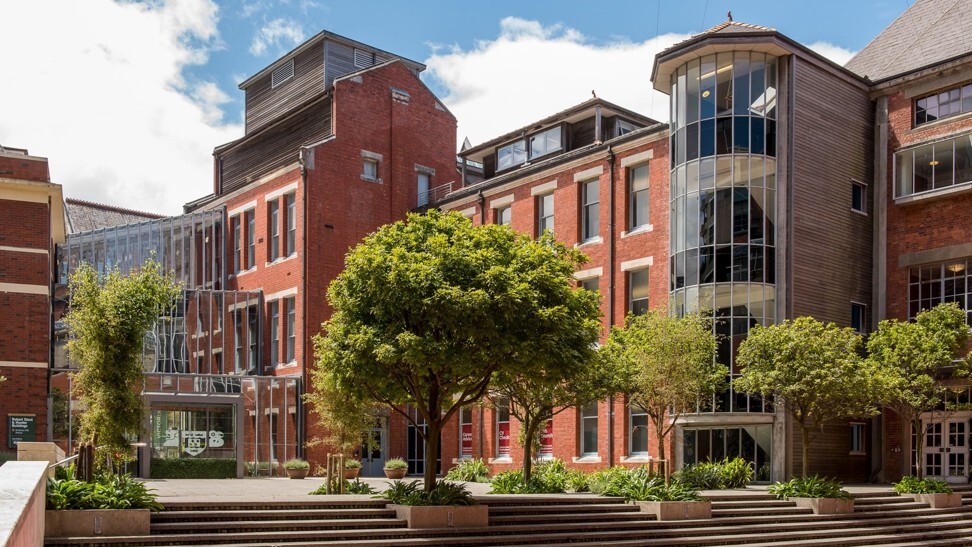
‘If it weren’t so sinister, we’d laugh’: probe of China researcher raises fears in New Zealand
- Professor Anne-Marie Brady is being investigated by her university after she named some local academics as working with institutions that allegedly have ties to China’s military
- The research was submitted to a New Zealand parliamentary committee in July and was also published by the Washington-based Wilson Center
The paper, Holding a Pen in One Hand and Gripping a Gun in the Other, raised alarm about New Zealand’s “commercial and educational links with PLA-affiliated organisations and individuals”, which it said posed “national security, as well as reputational, ethical and intellectual property risks” to the country.
Brady, a prominent critic of Beijing known for her work on Chinese influence overseas, named a number of New Zealand academics and universities, including UC, as being linked to Chinese universities with ties to the Chinese military.
Amid NZ election, Ardern and government walk a fine line on China
The research was submitted to a parliamentary committee in New Zealand in July and was also published by the Washington-based Wilson Center, where Brady is a fellow.
Stephen Franks, a lawyer representing Brady, said the complaints he had seen were lacking in specifics and his client had found no errors after rechecking her research. Brady was prevented from addressing the controversy after her university cited privacy considerations.
“If it were not so sinister we could laugh at the complaining universities, and Canterbury for giving the complaints the time of day,” said Franks. “The complainants should have been told to act as academics – publish their criticisms and concerns and any rebuttal information. That’s how such research gets refined.”
Franks said the university’s actions raised major implications for academic research.
“Would taking on itself the role of quality judge mean that in practice, to avoid cost and complaint, future world renowned researchers should not publish findings without risk of university discipline for claimed gaps in accuracy and completeness?” he said.
We know of no valid basis for any ‘review’ of Professor Brady’s work other than by her peers and other researchers and commentators, as is normal for academic research and publication
In an open letter earlier this month, more than 100 international academics and supporters defended Brady’s work and called on UC to apologise for taking part in “slander against a very distinguished scholar whose work has been consistently based on sound social scientific methodology”.
“We know of no valid basis for any ‘review’ of Professor Brady’s work other than by her peers and other researchers and commentators, as is normal for academic research and publication,” said the signatories, who included China scholars in New Zealand, Australia, Britain, Hong Kong, Japan and the United States.
“That will and should include informed criticism as and if grounds emerge,” they wrote. “Her publications are subject to peer review. They have brought great international credit to your university.”

Robert Potter, a fellow at the Center for Rule-making Strategies at Tama University in Tokyo, said the case raised academic freedom concerns.
“The complaints haven’t been made public,” said Potter, who has collaborated with Brady on research and signed the letter supporting her. “It is highly abnormal to run a review into research ethics prior to giving a reply by aggrieved parties through the journal process. It’s highly selective and utterly at odds with academic freedom.”
Richard McGregor, a senior fellow at the Sydney-based Lowy Institute, also described the proceedings against Brady as concerning.
“If Professor Brady’s report contained errors, then they can be corrected,” said McGregor, who was not among the letter’s signatories. “But to have an official university inquiry into her work sends all the wrong signals at a time when her research, which is recognised around the world for its quality and value, is more important than ever.”
China berates New Zealand for backing Taiwan’s bid for WHO observer status
Four professors named in the paper, all of whom are ethnically Chinese, did not respond to individual requests for comment.
UC declined to comment on Brady’s case, but said academic freedom, while core to the university’s mission, had to be carried out “according to the highest ethical standards and within the law”.
“UC values its obligation and role as a critic and conscience of society and supports and encourages academic staff and students to practise responsibly the tenets of academic freedom as set out in the Education Act and the relevant UC policy,” a spokesperson said. “UC has an obligation as a tertiary institution to ensure that these requirements are met by the institution itself and its staff and students.”
UC deputy vice-chancellor Ian Wright previously told local media that academics named in Brady’s paper had pointed to “manifest errors of fact and misleading inferences”.
Victoria University of Wellington, which Brady’s report highlighted for its ties to a Chinese university linked to the People‘s Liberation Army (PLA), said it contacted UC after concluding the paper failed to “uphold accepted scholarly standards and research integrity principles”.
“The work contains unsubstantiated assertions and incorrect information,” a spokesperson said. “We are also concerned that Professor Brady and colleagues have named individual Victoria University of Wellington researchers without giving them the opportunity to respond or clarify the information in the report.”
The spokesman added that the university had “strict protocols where some of our potentially sensitive technology areas are concerned and significant due diligence informs our decisions to work with partner organisations – this holds true in regard to the Chinese organisations named in the report”.
New Zealand professor who wrote about Chinese influence seeks protection
Massey University, which was also named in the paper, said it had no involvement in any complaints against Brady, but insisted it conducted an “enormous amount of risk assessment” when entering partnerships with external entities.
“We operate in an environment that should we have any concerns or want to verify details as part of due diligence, we will seek advice from government agencies,” a spokesperson said.
The University of Auckland did not respond to a request for comment, but previously told local media Brady’s paper had unfairly damaged the reputation of one of its professors and that it had found no evidence of any unlawful transfer of technology to China by its staff or students.
The Chinese embassy in New Zealand has denied allegations of interference in the country, and in a veiled attack earlier this year suggested to local media that Brady was among those “rampantly hyping up so-called ‘Chinese interference’ for their own gains”.


